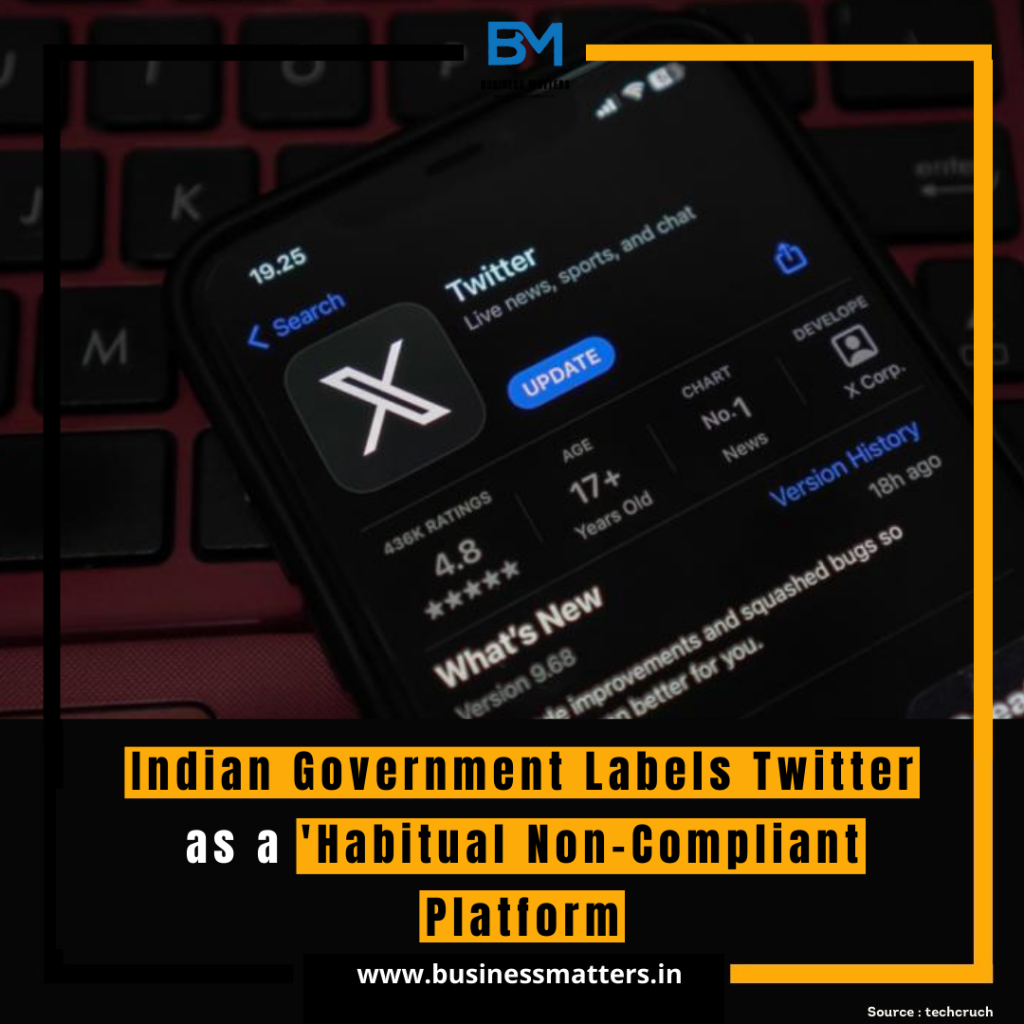
Twitter, one of the world’s largest social media platforms, has found itself in the crosshairs of the Indian government once again. The Indian government has labeled Twitter as a ‘habitual non-compliant platform’ due to its repeated failure to adhere to government regulations and requests. This latest development underscores the ongoing tensions between social media companies and governments worldwide, particularly in the context of content moderation and compliance with local laws.
A History of Controversy
Twitter has been at the center of several controversies in India in recent years. These controversies often revolve around issues of content moderation, government requests for removal of specific content, and concerns about the platform’s compliance with Indian laws. Some key points of contention include:
- Farmers’ Protests: Twitter faced backlash in early 2021 for temporarily blocking certain accounts and tweets related to ongoing farmers’ protests in India. The government accused Twitter of not promptly complying with its orders to remove specific content it deemed inflammatory.
- New IT Rules: The Indian government introduced new Information Technology (Intermediary Guidelines and Digital Media Ethics Code) Rules, 2021, which require social media platforms to appoint compliance officers, establish grievance redressal mechanisms, and comply with government requests for content removal. Twitter’s initial reluctance to fully comply with these rules led to friction with the government.
- Legal Proceedings: Twitter has faced legal proceedings in India, including contempt of court charges, for not promptly removing certain content flagged as defamatory or objectionable.
The ‘Habitual Non-Compliance’ Label
The Indian government’s recent characterization of Twitter as a ‘habitual non-compliant platform’ is a significant escalation of the tensions between the social media giant and Indian authorities. This label is based on Twitter’s perceived failure to comply with multiple government directives and its repeated clashes over content removal and adherence to new IT rules.
Government Concerns and Expectations
The Indian government has expressed concerns about the potential misuse of social media platforms to spread misinformation, incite violence, and undermine national security. As a result, it has introduced regulations aimed at ensuring that social media companies take greater responsibility for the content posted on their platforms.
The government expects social media platforms like Twitter to adhere to these regulations, appoint local compliance officers, establish mechanisms for addressing user grievances, and promptly comply with lawful requests for content removal. Failing to meet these expectations could lead to legal consequences and restrictions on the platform’s operations in India.
Impact on Twitter and Social Media
Twitter’s designation as a ‘habitual non-compliant platform’ in India carries significant implications for the company. India is one of Twitter’s largest user bases, and any restrictions or legal challenges in the country could impact the platform’s global operations and reputation.
This development also raises broader questions about the role and responsibilities of social media companies in moderating content and complying with local laws. Social media platforms are under increasing pressure from governments worldwide to strike a balance between freedom of expression and addressing harmful content.
The Global Context
Twitter’s situation in India is not unique, as social media companies face similar challenges and controversies in various countries. Governments are grappling with the influence and reach of these platforms, particularly in disseminating information and shaping public opinion.
The tensions between social media companies and governments highlight the need for a nuanced and balanced approach to content moderation, data privacy, and compliance with local regulations in the digital age. Striking this balance is an ongoing challenge for both technology companies and governments worldwide.
Conclusion
Twitter’s classification as a ‘habitual non-compliant platform’ by the Indian government underscores the complex relationship between social media companies and governments when it comes to content moderation and adherence to local laws. As the digital landscape continues to evolve, finding common ground between freedom of expression, user privacy, and government regulation remains a pressing global issue. The outcome of this dispute could have implications not only for Twitter but also for the broader conversation surrounding social media governance.

